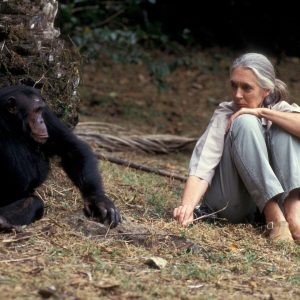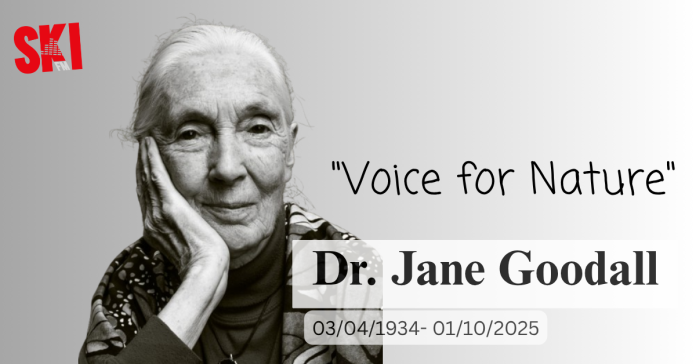Discover Jane Goodall’s conservation legacy and her lasting impact on wildlife, science, and hope for our planet.
The world mourned on October 1, 2025, as Dr. Jane Goodall, the legendary primatologist and conservationist, passed away at age 91. Her death of natural causes in California, while on a speaking tour, marked the end of an extraordinary life dedicated to understanding our closest relatives in the animal kingdom and advocating for environmental protection.
Goodall’s journey began in 1960 when, at just 26 years old, she arrived in what is now Tanzania with little more than a notebook and unwavering determination. Without formal scientific training, she embarked on groundbreaking research at Gombe Stream Game Reserve that would revolutionize primatology forever. Her patient observations revealed that chimpanzees possessed complex emotions, social structures, and most remarkably, the ability to make and use tools.This discovery challenged the fundamental understanding of what separated humans from other animals. When she documented chimpanzees stripping leaves from twigs to fish for termites, renowned anthropologist Louis Leakey declared that science must either “redefine man, redefine tool, or accept chimpanzees as human”.Beyond her scientific achievements, Goodall became a tireless global advocate for conservation and environmental protection. In 1977, she established the Jane Goodall Institute, which continues to support chimpanzee research and community-centered conservation programs across Africa.

Her Roots & Shoots program, launched in 1991 with just 12 Tanzanian students, has grown to include over 10,000 groups in more than 100 countries.Throughout 2024 and early 2025, Goodall remained remarkably active despite her advanced age. She delivered a powerful “Speech for History” at UNESCO in October 2024, co-founded the “Vote for Nature” campaign ahead of the 2024 elections, and received the Presidential Medal of Freedom from President Biden in January 2025, the United States’ highest civilian honor.Her philosophy centered on hope as an active choice rather than passive waiting. “I see human beings standing at the mouth of a very long, very dark tunnel,” she often said, “and right at the end, there’s a little star, and that’s hope. But it’s no good sitting at the mouth of the tunnel and waiting for that star to come”.Goodall’s influence extended far beyond scientific circles. She inspired generations of women to pursue careers in field research and conservation, breaking gender barriers while demonstrating that compassion and scientific rigor could coexist. Her message that “every individual matters, every individual has a role to play, every individual makes a difference” became a rallying cry for environmental activists worldwide. As tributes pour in from world leaders, celebrities, and conservationists, Goodall’s legacy lives on through the Jane Goodall Institute, the millions of young people touched by Roots & Shoots, and the transformed understanding of our relationship with the natural world. Her life’s work reminds us that with determination, empathy, and unwavering hope, one person truly can change the world.




